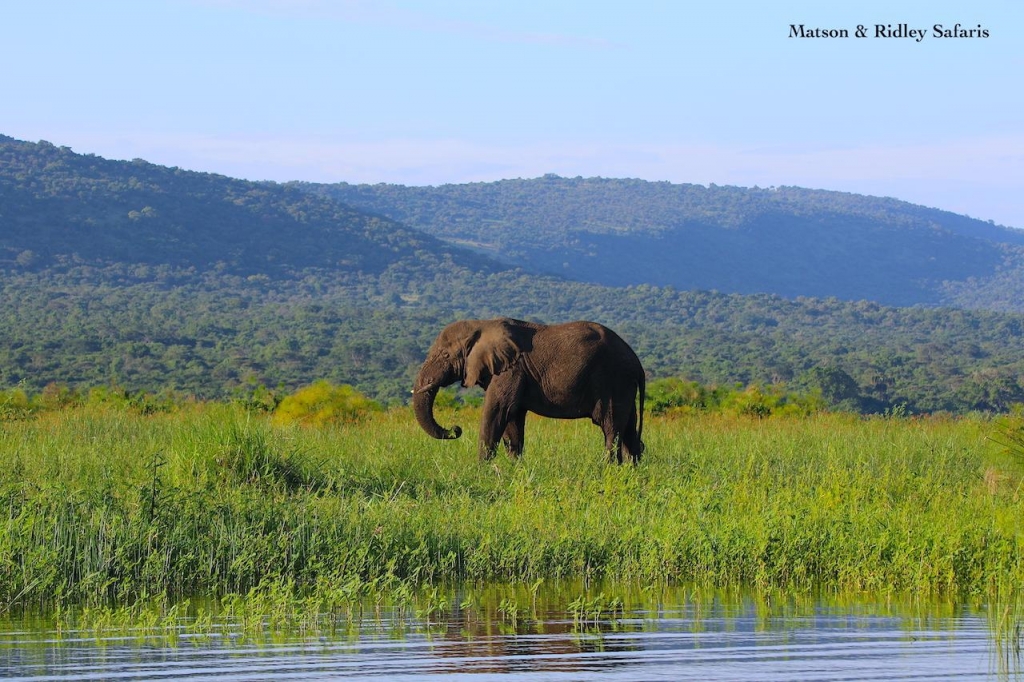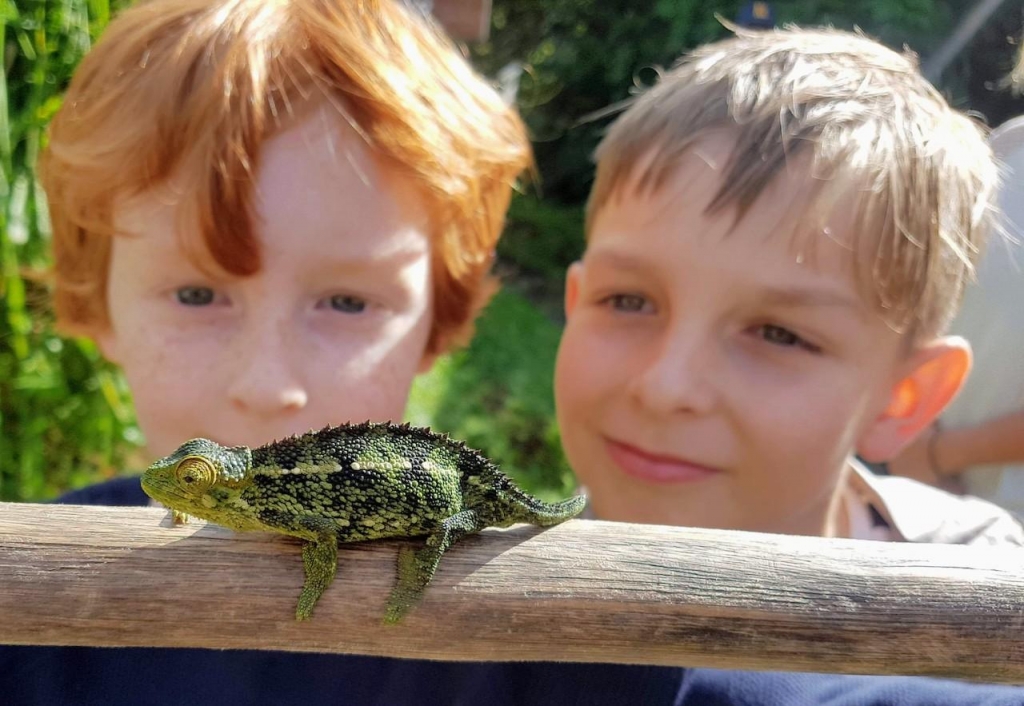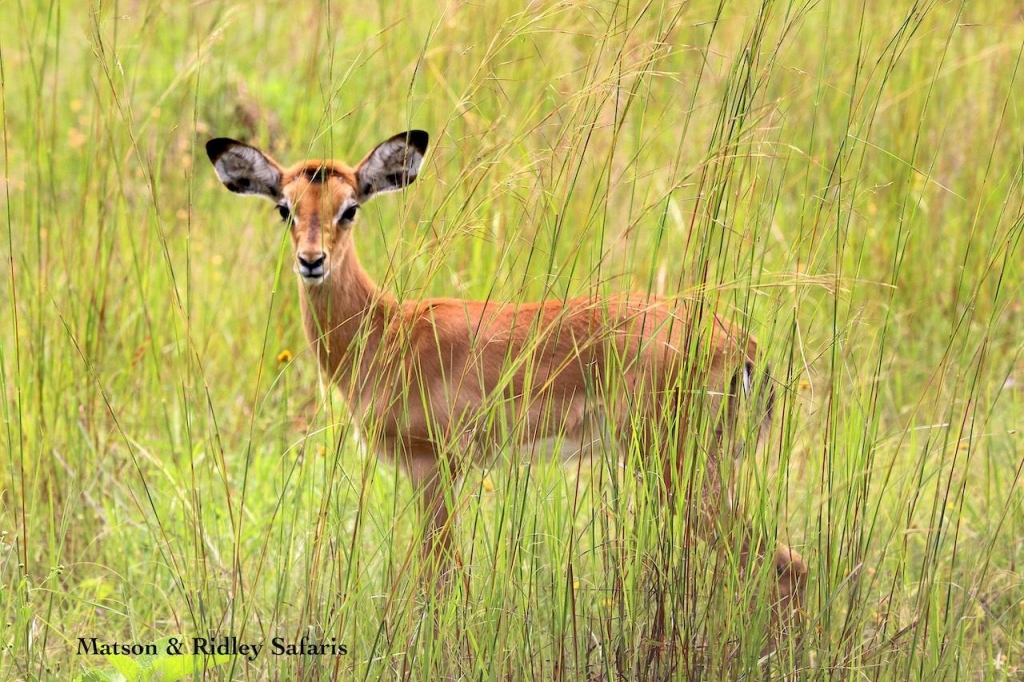It's that time of year again - and yet, it s a very different kind of Christmas this year for so many of us. As Covid-19 continues to rise up across the world, we are thinking of our friends who are being forced to spend the festive season away from loved ones and in lockdown. It's certainly been a year full of upsets in our travel plans, but with the vaccine making good progress we've come a long way from where we were at the start of the year as the virus began to roll out across the planet.

Photo: A bull in Akagera known as Gahembe, spotted by boat in December 2019
The end of the year for me is always a time of reflection and planning for what comes next. This time last year, I had just finished a fantastic elephant research and mountain gorilla trekking safari in Rwanda with a superb group of people, and by Christmas I was with my family in Akagera, collecting data on the elephant population. It was in many ways a full circle moment for me, as many years ago when I moved into conservation and tourism I always hoped that one day I'd be able to get back onto the ground again in Africa doing the stuff I love most - wildlife work. I just love being in the bush watching wildlife and seeing what's around that next corner on a game drive. Nature never ceases to amaze and teach us new things. And the gift of doing on-ground research is that you get to go out to the same areas every day and really get to know the animals, which has been one of the best things about this project in Akagera. Now we know two-thirds of the population through their unique IDs and a little of their personalities and relationships.

Photo: Solo and Shep with a chameleon at Sabyinyo Silverback Lodge, taken by our guest, Matt Cornish
To be able to undertake the Akagera Elephant Project with the help of the amazing team at African Parks in Akagera, the freelance community guides who continue to collect information on elephant sightings and movements all year, our safari guests, and for a short while last December, my family, has really been another dream come true. But within weeks of arriving home a year ago, as you all know, everything was about to change. This year Andy and I and our boys will be on my parents' farm on the Atherton Tablelands in northern Australia, braving the North Queensland heat and eating a prawn or two. While 2021 is still uncertain in so many ways, many of the best African countries for safaris are open for business and as soon as it is safe we cannot wait to get you over to immerse yourself in all the splendour that is an African safari. Many of our valued guests have continued to support the community freelance guides' livelihoods and our elephant work this year and for this we are enormously grateful. Our tourism partners at Natural Selection, Asilia Africa and Wilderness Safaris have also worked tirelessly to support local communities and keep conservation going on the ground. For all of us, this is not just any old job; the conservation work must go on. I ll be in touch with all of our guests early in the new year to discuss where things are at with our 2021 safaris as more information comes to light on the vaccine and international border openings in various countries.
I hope that wherever you are this Christmas that you find silver linings, much to appreciate and keep those dreams alive of Africa. It won t be that long before we're all gazing at a blazing African sunset overlooking those glorious plains full of wildlife again - and it will be all the more worth it for the wait.

Photo: A baby impala in Akagera National Park. When the rains come around this time of year in Africa, the baby animals arrive en mass in one of nature's greatest spectacles.
In the meantime, for some light-hearted banter, last week I had a fun chat with fellow safari guide and author of 3 books including "Whatever you do don't run", Peter Allison. Conservation can be a serious business, so this almost 1 hour long video podcast is something a little more fun for the festive season, exploring why impalas are the smartest animals in Africa (even though Peter compared them to flies - I m still offended), the inherent awesomeness of elephant dung, and why the most dangerous animal on the planet isn't any of the ones that have charged Peter and I the most in Africa.
Happy Christmas to you all and a fabulous 2021!
